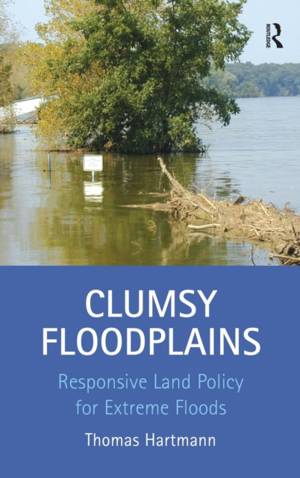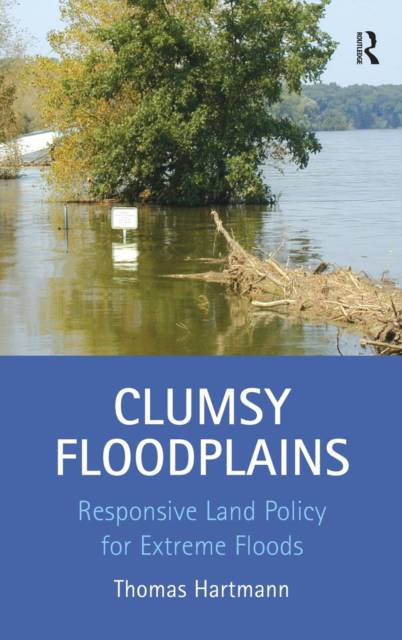
Bedankt voor het vertrouwen het afgelopen jaar! Om jou te bedanken bieden we GRATIS verzending (in België) aan op alles gedurende de hele maand januari.
- Afhalen na 1 uur in een winkel met voorraad
- In januari gratis thuislevering in België
- Ruim aanbod met 7 miljoen producten
Bedankt voor het vertrouwen het afgelopen jaar! Om jou te bedanken bieden we GRATIS verzending (in België) aan op alles gedurende de hele maand januari.
- Afhalen na 1 uur in een winkel met voorraad
- In januari gratis thuislevering in België
- Ruim aanbod met 7 miljoen producten
Zoeken
€ 305,45
+ 610 punten
Uitvoering
Omschrijving
Extreme floods cause enormous damage in floodplains, which levees cannot prevent. Therefore, it is vital for spatial planning to provide space for water retention in these areas. Land use planners, water management agencies, landowners, and policymakers all agree on this challenge, but attempts to make the space for rivers to provide retention are generally not very successful. Adopting an innovative interdisciplinary approach, this book examines how society can manage the use of the floodplains along rivers in the face of extreme floods, focusing in particular on the relation between social arrangements and the elemental forces of floods. The book firstly analyses why contemporary floodplain management is so often clumsy and ineffective by looking at various real-life situations in Germany, using Cultural Theory to provide a much-needed, but previously neglected social perspective. These analyses show a pattern of activity resulting from different rationalities which dominate the floodplains in different phases. During extreme floods, it is rational to manage floodplains as dangerous areas; sandbags and disaster management dominate the scene. After some time, the rationality of control takes over the floodplain management; policymakers discuss flood risk and water managers build levees. When public attention diminishes, floodplains become inconspicuous until more and more stakeholders regard floodplains as profitable land. The current system of planning, law, and property rights even encourages stakeholders to act out their plural rationalities. A permanent dynamic imbalance of different rationalities leads to a robust social construction of the floodplains which results in viable but clumsy floodplains. In the course of time, however, the patterns of activity in the floodplains lead to an increase in intensity and frequency of extreme floods, and to more vulnerable potential damages in the floodplains. Risk increases. Coping with this situation needs another kind of floodplain management. This book proposes an innovative concept - Large Areas for Temporary Emergency Retention (LATER) - in "Clumsy Floodplains" as an alternative to levee-based flood protection. The concept aims at reducing damage by extreme floods in a catchment area by inundating less valuable areas to protect places that are more valuable. It finally examines how this LATER concept might be implemented in areas where there is currently a clumsy style of floodplain management, what interventions are required and how these might come about effectively. Again, using Cultural Theory, the book puts forward a valuable land policy solution which aims at implementing LATER in clumsy floodplains and which develops an obligatory insurance against natural hazards as a responsive land policy for LATER. The book represents the author's PhD research, which he conducted as research assistant at the department for Land Policy, Land Management and Municipal Geoinformation at the School of Spatial Planning, TU Dortmund University, Germany.
Specificaties
Betrokkenen
- Auteur(s):
- Uitgeverij:
Inhoud
- Aantal bladzijden:
- 170
- Taal:
- Engels
Eigenschappen
- Productcode (EAN):
- 9781409418450
- Verschijningsdatum:
- 28/01/2011
- Uitvoering:
- Hardcover
- Formaat:
- Genaaid
- Afmetingen:
- 156 mm x 234 mm
- Gewicht:
- 417 g

Alleen bij Standaard Boekhandel
+ 610 punten op je klantenkaart van Standaard Boekhandel
Beoordelingen
We publiceren alleen reviews die voldoen aan de voorwaarden voor reviews. Bekijk onze voorwaarden voor reviews.









